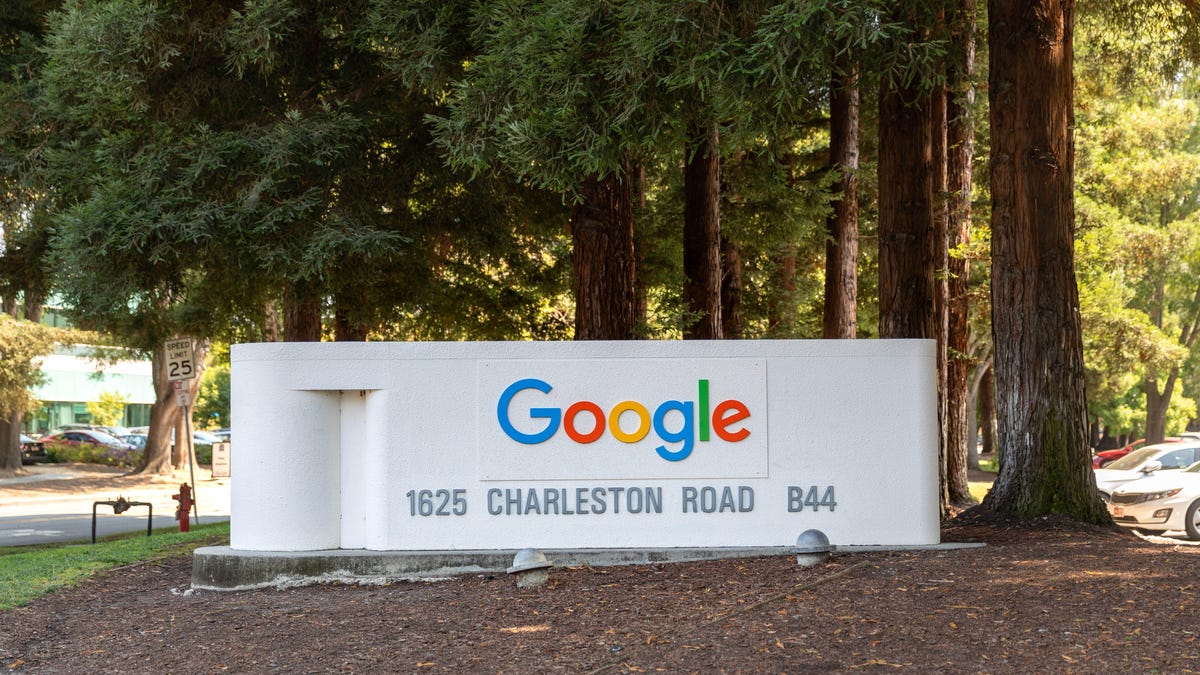Google, plagued by data and privacy issues, still rakes it in
Despite scandals, like its spat with Apple or its Dragonfly search project, business is good.

Google headquarters in Mountain View, California
Google's list of problems is no joke: Its own workers have publicly risen up against the company in protest over sexual assault allegations and its work with the military. CEO Sundar Pichai was dragged in front of Congress in December to answer for privacy and censorship scandals. And just last week, the search giant angered Apple for violating the terms of its App Store while distributing a market research app.
One thing is still golden for Google, though: It's making a ton of money.
In the last three months of the year, Google's parent, Alphabet, tallied $39.27 billion in sales, beating analyst estimates of $38.94 billion, the company said Monday. Earnings per share were $12.77. Analysts on average had expected $10.82 per share, according to Thomson Reuters.
"More than 20 years in, there is still tremendous opportunity for Google to help people save time, learn new things, grow their businesses and build stronger communities," Pichai said during a conference call with analysts on Monday.
Traffic acquisition costs, or the fees the company pays to partners to make sure its search results are seen, rose to $7.4 billion from $6.4 billion over the same period last year. That came to 23 percent of Google's total advertising sales. The company also said it's spending more money on its "other bets," which include projects like Waymo's self-driving cars and Verily's medical technology. The operating loss for those initiatives was $1.3 billion in the fourth quarter, up from $784 million the year before.
Shares fell about 3 percent in after-hours trading on those higher expenses.
Facing controversies
The just-ended quarter capped off arguably the toughest year of Google's existence. In November, Google workers made history when more than 20,000 employees and contractors from cities around the world walked out of their offices to protest the company's handling of sexual assault accusations against top executives. The walkout marked the peak in a year of protests by Google employees, who spoke out against the company's work with the Pentagon and Google's plans for a search project called Dragonfly in China.
Google has also been the target of intense scrutiny in Washington, DC. Several prominent Republicans, including President Trump, have accused Google of an anticonservative bias. In August, Trump tweeted that Google's search results are "rigged," saying the company is "suppressing voices of Conservatives." In December, when Pichai faced the then-GOP controlled House of Representatives, he fielded questions from angry Republican lawmakers about what they considered liberal leanings by Google's workforce.
And last week, the search giant felt the wrath of Apple. Google misused an App Store program to distribute an app called Screenwise Meter to consumers. The app, first released in 2012, invited users outside the company to earn gift cards in exchange for letting Google monitor and analyze their data. ( Facebook was doing something similar with an app called Facebook Research.)
After the news coverage, Google shut down the app for iOS devices on its own, but Apple still punished Google by blocking its ability to distribute internal apps. The outage only lasted a few hours, but underscored the tremendous power Apple has over Google.
The YouTube factor
On Monday, Pichai also indicated that YouTube , which Google owns, had a strong quarter. The company, however, doesn't break out YouTube's revenue.
"In the long run, I think for me, YouTube is a place where we see users not only come for entertainment," Pichai said on the call. "They come to find information. They're coming to learn about things. They're coming to discover, to research."
That isn't surprising. YouTube is the world's largest video site, with more than 1 billion visitors a month. But it also underscores the need for Google to invest in security and safety, and fight abuse and disinformation. The site is still reeling from coordinated campaigns that used it to try to influence the 2016 election, as well as problems with extremist and objectionable content.
Pichai was also asked by an analyst if he's reconsidered the 30 percent cut that Google takes from software developers when they distribute their apps on the company's Play store. Pichai said the cut is an industry standard (Apple takes the same percentage on its iOS App Store), and noted that there are infrastructure and engagement benefits to being on the Play store.
"So I think we'll continue down that path, but obviously, always adapt to where the market is," Pichai said.
First published Feb. 4 at 1:08 p.m. PT.
Update, 3:34 p.m. PT: Adds information from Alphabet's conference call.
Apple's clash with Facebook and Google: Here's what you need to know.
The Smartest Stuff: Innovators are thinking up new ways to make you, and the things around you, smarter.

